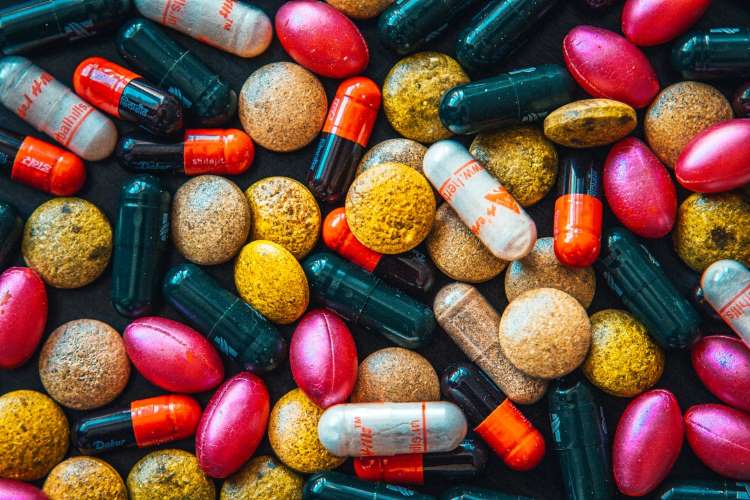
Budget 2022 may push innovation: The importance of healthcare sector was increasingly felt in the last 22 months when the Covid-19 pandemic gripped the world and brought all economic activity to a standstill. The only beacon of hope was the efforts by the frontline health workers who rose to the occasion.
A number of initiatives were taken by the government to boost the sector by introducing various incentive packages such as the production linked incentive scheme for active pharmaceutical ingredients, key starting materials and medical devices , as well as a scheme for the promotion of bulk drugs parks. This clearly shows the intent of the government to provide an impetus to the sector. The announcement of these schemes which are in line with the Atmanirbhar Bharat initiative has encouraged domestic and international players to invest more.
Another welcome step taken by the department of pharmaceuticals was the issuance of the draft research and development policy that aims at creating an ecosystem for innovation. Besides this, the recent announcement of Ayushman Bharat Digital Mission (ABDM) is certainly a promising initiative in the digital age.
READ I Budget 2022: Electoral and fiscal compulsions will test FM’s balancing skills
While the companies are geared up and are working towards making India self-reliant, there are certain hurdles that the industry faces at the operational level. In terms of production of APIs, the cost of a few raw materials and electricity are much higher compared with other Asian countries. This has a significant impact on the viability of the projects. These countries have been able to supply their products in India through different routes. As India intends to regain its leadership position, it is pertinent to work towards overcoming these challenges.
Tax sops to healthcare
There are a few measures expected to be taken to increase the affordability of healthcare services. Healthcare services are currently exempt from GST, except for a few areas in services. The procurement taxes for inputs, input services and capital goods form a significant part of the operational costs.
Removing these levies will achieve the twin objectives of keeping the credit chain intact while ensuring that tax is not loaded on to the cost of healthcare services. Refunds on this account will enable the service providers to pass on the benefits in terms of affordable healthcare services. Further, with respect to the traded supplies to government hospitals / departments, reduced rate of 5% GST and full exemption from basic customs duty would be a great move. This will reduce the cost for government and make healthcare services more affordable.
As regards research and development, everyone is eagerly waiting for the final R&D policy and schemes. Experts agree that the Indian pharma industry is being seen as a preferred global supplier of innovative medicines and novel ingredients in the post-pandemic world. Companies are desirous of improving their investments in R&D, and considering at investing in novel drug delivery systems (NDDS) across various medical therapies for a range of diseases from HIV, cancer and Covid-19.
READ I Budget 2022: Renewable energy sector seeks duty cuts, expanded PLI scheme
More new products from biotechnology and products with less side effects could hit the market. In the age of digitisation, the companies are investing in technology, data analytics for R&D and manufacturing.
The usage of artificial intelligence and machine learning tools is becoming more popular for better predictability and outcomes in drug discovery and development programmes. Use of technology can reduce the entire discovery and development process by 3-5 years. The industry is working towards achieving speed, efficiency, quality, compliance, safety, and transparency in business operations.
Budget 2022 and innovation
The global biosimilar market will be worth of $240 billion and Indian biosimilars market will reach the value of $40 billion by 2030. India is considered one of the emerging hubs for biologics and biosimilars.
After CDSCO revised the biosimilar guidelines in 2016, several Indian pharmaceutical companies are making significant investments into biosimilar development and production into global markets. Also, India is providing an affordable place to carry out research and development, more international players are partnering with Indian companies.
Schemes offering research incentives can provide an impetus to the industry. Certain incentives focussing on investment in R&D along with academia could be introduced. Considering the desire, requirement and steps being taken by industry towards drug development, it is extremely important to revisit the current patent box regime. This needs expansion of its coverage. Introducing a reduced tax regime on commercialisation of the patents anywhere across the globe will make it attractive and implementable.
The above steps will truly be in line with what Prime Minister Narendra Modi said at the recent Global Innovation Summit through which he invited everyone to ideate in India, innovate in India and make in India and make for the world.
The survival of the mankind depends on a robust life science and healthcare sector. Therefore, it is imperative to provide a much-needed fillip to encourage innovation and making it affordable to all. A few positive steps in this direction could be expected in Budget 2022, to be presented on February 1 by finance minister Nirmala Sitharaman.
(Shuchi Ray is Partner and Vikram Kulkarni is Senior Manager at Deloitte Haskins & Sells LLP.)

